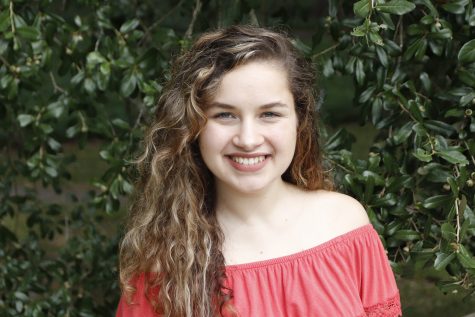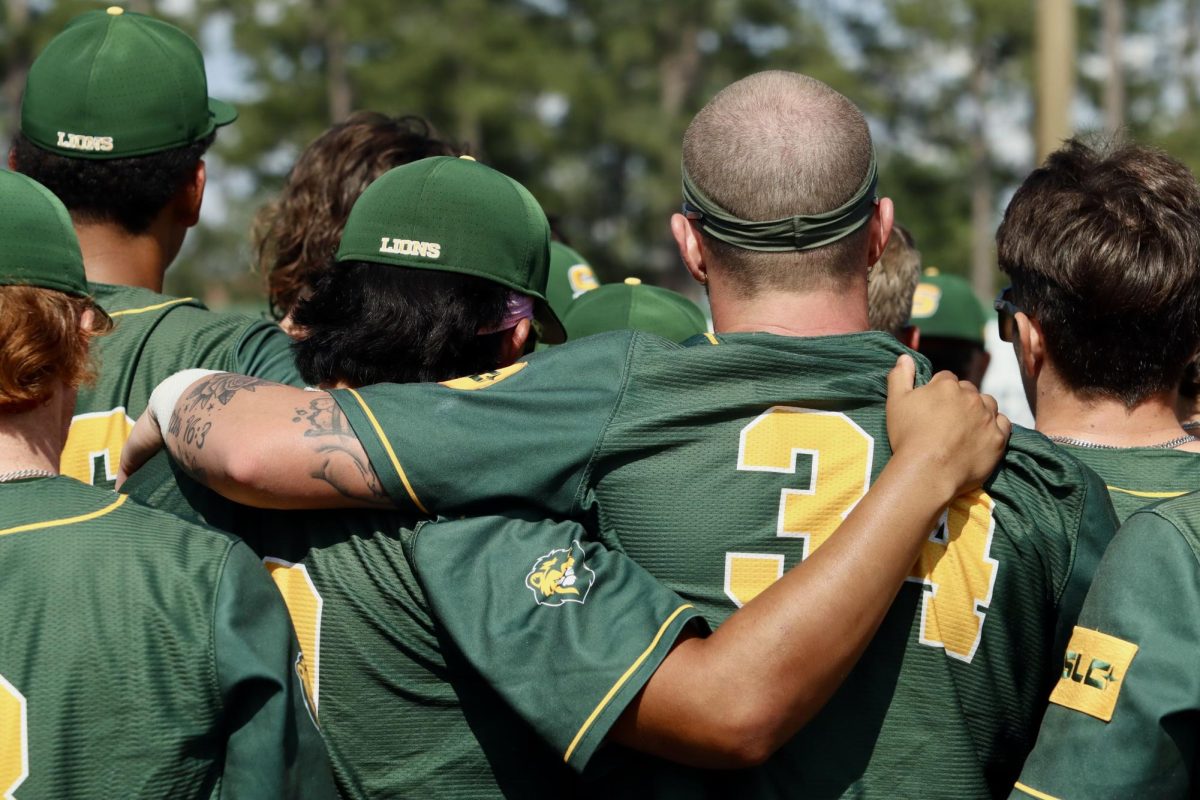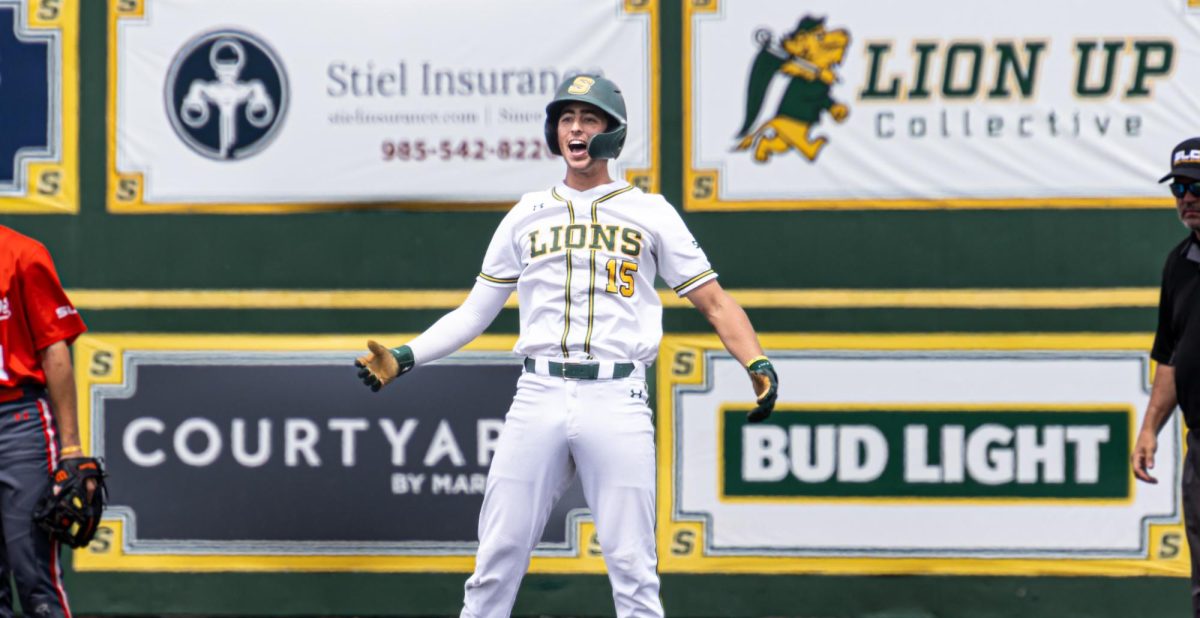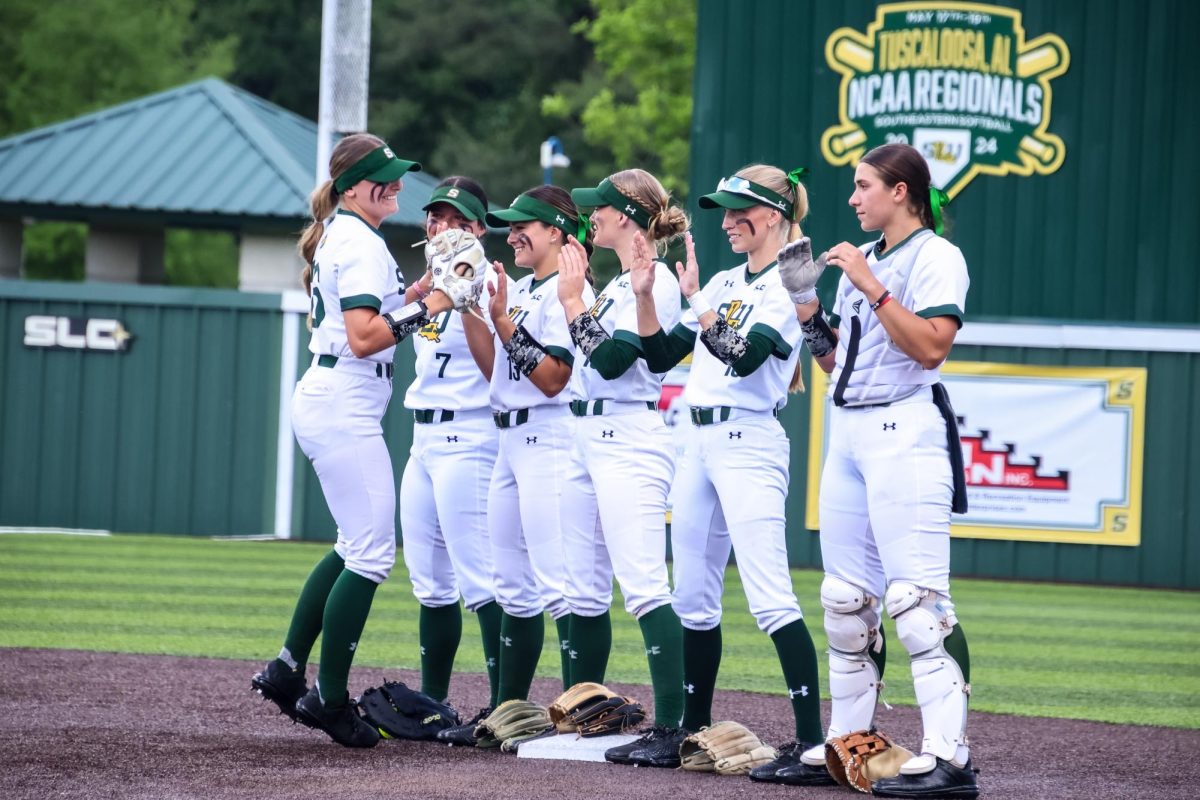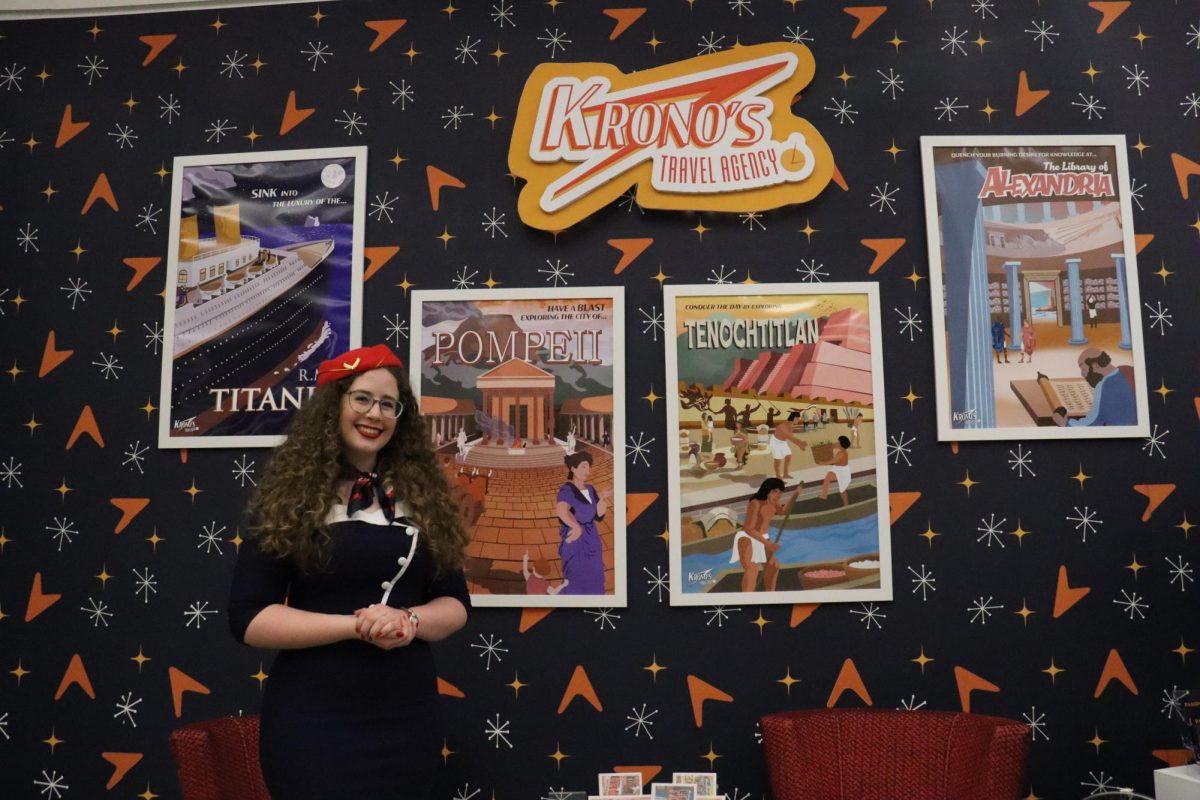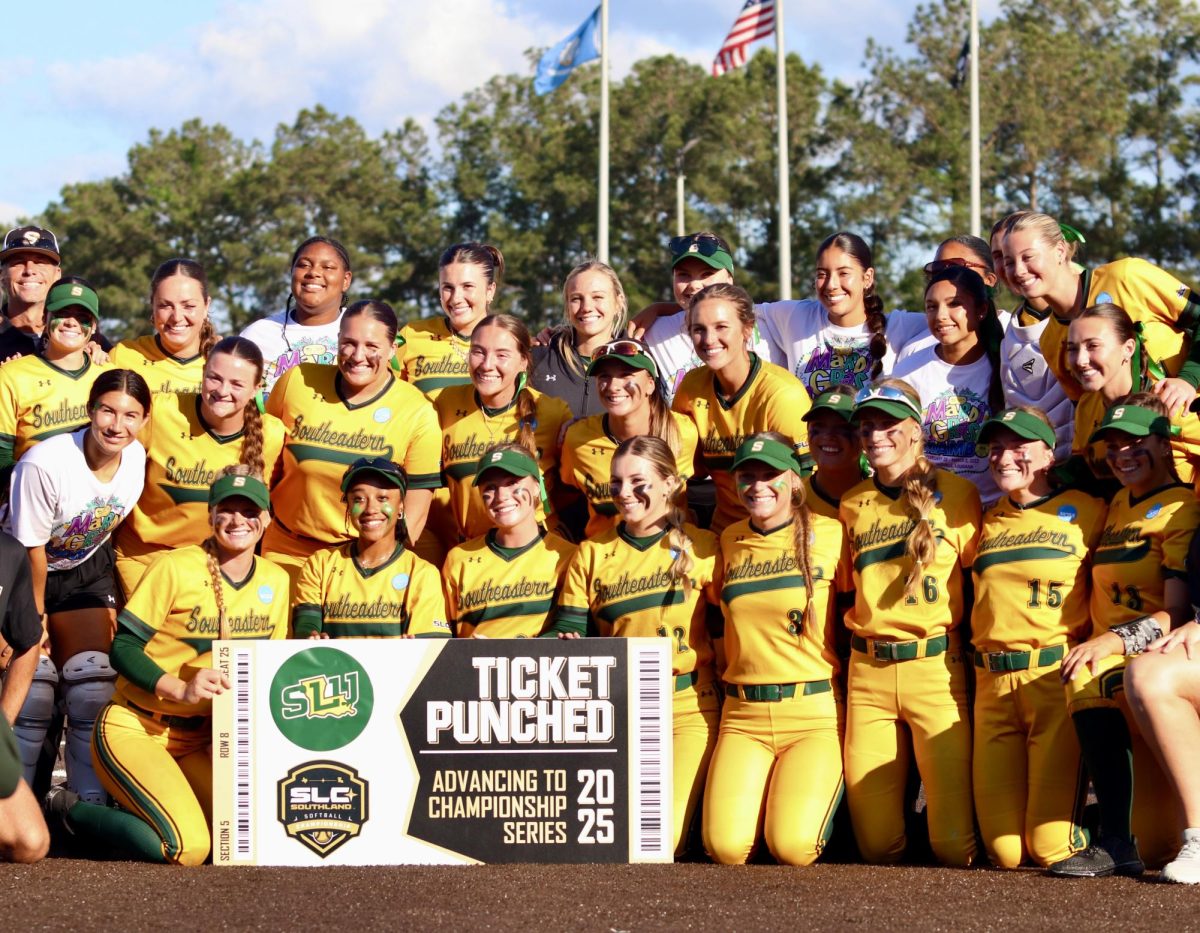
Instructor of History Dr. Craig Saucier speaks at the Student Union Threatre about why it is important to remember the Holocaust. Jennifer Dettwiller/The Lion's Roar
The department of history and political science ended the year-long lecture series about World War II focusing on Yom Hashoah, or Holocaust Remembrance Day.
The lecture took place on Monday, April 23 in the Student Union Theatre for students to learn about why it is important to remember the Holocaust.
Having gone to the 22nd Annual Summer Holocaust and Jewish Civilization Institute to gather information about the Holocaust, Instructor of History Dr. Craig Saucier spoke on the importance of not denying the Holocaust like many have tried to do throughout the years since.
“Yom Hashoah is a Jewish holiday that commerates the memory of those who perished, so it is directly related,” said Saucier. “What I do is I talk about Holocaust denial because what Holocaust denial does is to undermine the memory of those people, and what I was saying at the end is a quote, ‘By denying the Holocaust, we kill these people for a second time,’ and our job is to remember so that this won’t happen again.”
Saucier explained that what the deniers or revisionist were trying to accomplish in their attempt to discredit the Holocaust “was an assault on history” and why people should care about the impact deniers have had.
“Lots of these people have advance academic degrees,” said Saucier. “Lots of these guys possess an authoritative command of historical facts and detail related to the Holocaust. The movement is dangerous precisely because these guys, these people, endeavored to rewrite history for personal and political objectives to justify and to rationalize their political ideology.”
Revisionists, which confers an academic sense of legitimacy, sounding more respectable is why deniers went by this title instead of deniers. The Institute for Historical Review and the Journal of Historical Review were both designed to sound academically legitimate to help the deniers’ cause. They were later discredited by the American Historical Association.
“In the beginning of the '90s, deniers did become a lot more successful in becoming more and more visible in getting their message out there,” said Saucier. “They were appearing on TV talk shows in the middle of the afternoon. They were putting advertisements in college newspapers, and that was stirring up a tremendous amount of controversy and comment and debate on college campuses.”
Saucier discussed the findings of a report on the lack of knowledge among Americans regarding the Holocaust.
"One-third of all Americans in general and 41 percent of millennials believe that the number of Jews who were killed during the Holocaust was quote, ‘substantially less than 6 million,'" said Saucier. "The number they believe is about 2 million. Furthermore, the second key finding, the report also revealed that approximately 41 percent of all Americans in general and 66 percent of millennials have no idea what Auschwitz was.”
A new course offered by the university history and political science department will be available for enrollment beginning in the fall 2019 semester to educate students on the Holocaust.


